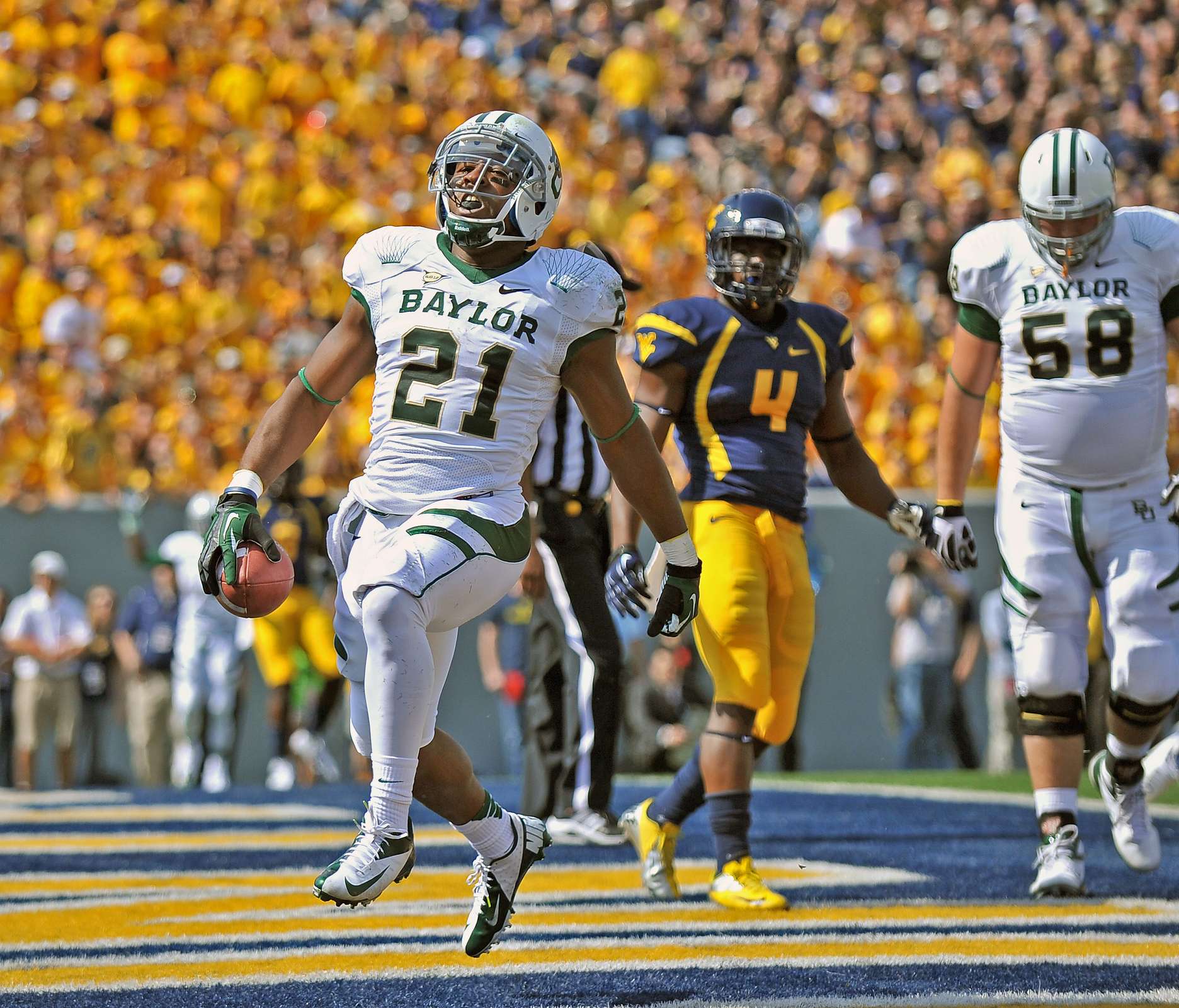Waco PD Took "Extraordinary Steps" to Keep Baylor Football Accusations Quiet, School's Apology Rings Hollow
Bombshell report says Baylor officials and coaches retaliated against rape accusers, but is maddeningly vague and short on details.


Baylor University released a report yesterday summarizing an investigation conducted by the law firm Pepper Hamilton which found a systemic cover-up of multiple rape and assault allegations against the private Christian university's football players by administrators and the coaching staff. The report reveals how the school's culture of protecting its cash-cow football program trumped all other concerns, including those of the victims of alleged sexual assault.
What is not in the report, but which was exposed by ESPN's Outside the Lines last week, is that the Waco Police took "extraordinary steps" to keep at least one alleged incident of non-sexual assault by a Baylor football player from public view, "given the potential high-profile nature of the incident."
Outside the Lines obtained a police report which showed that an investigating officer had the case "pulled from the computer system so that only persons who had a reason to inquire about the report would be able to access it," and that the case was then kept in a locked office. Another case alleging sexual assault by a high-profile player was kept in "open-case status" indefinitely, which per Texas law keeps it from public scrutiny.
The show also reports:
Waco police spokesman Patrick Swanton told Outside the Lines on Tuesday that detectives can pull certain cases from public view for privacy concerns and that it has happened before in cases that have no ties to Baylor.
"Was this done specifically because this was a Baylor case and because it involved Baylor football players? I can't tell you that," he said. He said Waco police do not have a policy to contact Baylor officials when they suspect a student of involvement in a crime; he said there are times when it is appropriate, but doing so does not yield special treatment.
But this is the very definition of "special treatment." As my colleague Robby Soave has argued here at Reason, rape is a violent crime "best left to law enforcement" to investigate, but the Waco PD's deference to the "high-profile" football players they were obligated to investigate may have contributed to a chilling effect which discouraged other alleged victims from coming forward.
As for Baylor itself, the university is clearly trying to shape a narrative that they recognize an institutionalized problem, but that they are capable of handling it internally. Board of Regents chair Richard Willis said that he was "horrified by the extent of these acts of sexual violence on our campus" which "shocked and outraged" the board, and though the report contains numerous disturbing findings, it is unforthcoming with important details, as well as the names of university staffers who participated in the cover-up.
Baylor's press release begins with an apology to "Baylor Nation" and an announcement that football coach Art Briles is suspended with "intent to terminate" and school president Ken Starr (the former special prosecutor who vigorously went after President Bill Clinton over perjury relating to his sexual relationship with intern Monica Lewinsky) has been removed from his post but will remain with the school as chancellor and a law professor (with a reported focus on "fundraising and religious liberty"). Additionally, Athletic Director Ian McCaw was "sanctioned and placed on probation."
However, the rest of the text reads like a euphemistic sleight-of-hand presenting a contrite institution set on reforming itself from within, but is maddeningly unforthcoming with vital information.
In the Board of Regents' "Findings of Facts," the school's efforts to "provide a prompt and equitable response under Title IX" to "consistently support complainants" were deemed "wholly inadequate." Also, two administrators were found to have "directly discouraged complainants from reporting or participating in student conduct processes" and that "in once instance, those actions constituted retaliation against a complainant for reporting sexual assault."
This is head-exploding outrageous stuff, but what good is it without naming names or spelling out the actions themselves? "Retaliation" can mean a lot of things, and without a full public accounting of this deplorable activity, Baylor's apology rings hollow.
One particular portion of the report describes multiple examples of alleged sexual assault by members of the football team, which led to "football coaches or staff [meeting] directly with a complainant and/or a parent of a complainant," and "As a result, no action was taken to support complainants."
Again, why the continued secrecy? Was it Briles, a wildly popular and successful head coach, or a junior team staffer acting upon his behest? And what was the nature of these meetings? Did these constitute intimidation, as well?
The press release makes predictable promises of self-reform such as "committing sufficient infrastructure and resources to the Title IX office, conducting a "review [of] all cases of interpersonal violence over the past three academic years," requring annual training "for all students, faculty, employees and contractors, with additional trauma-informed training for implementers, investigators and adjudicators," "revisit[ing] protocol for sharing information between Waco Police Department and Baylor University Police Department," and a pledge to "establish dedicated victim-advocacy service."
In other words, pouring more money and adding more bureaucracy to a system which has already repeatedly demonstrated that it can't be trusted to do the right thing, and which valued its football program over any sense of integrity or "Christian values."
The authors of the report pat themselves on the back by declaring, "This statement contains the salient findings, which are being shared publicly to reflect transparency and accountability," but near the bottom of the press release, it is made plain that Pepper Hamilton relayed its investigative findings to the Board of Regents verbally at a meeting earlier this month and that "no written report has been prepared."
Keeping secret the highly relevant names and deeds of those responsible for this situation is bad enough. The fact that this investigation hasn't even yielded a written report works very much in favor of an institution which would like the public to believe that it has found religion (so to speak) and will never stray from the path again.
There's a whole lot of "transparency and accountability" not being pursued here.


Show Comments (96)